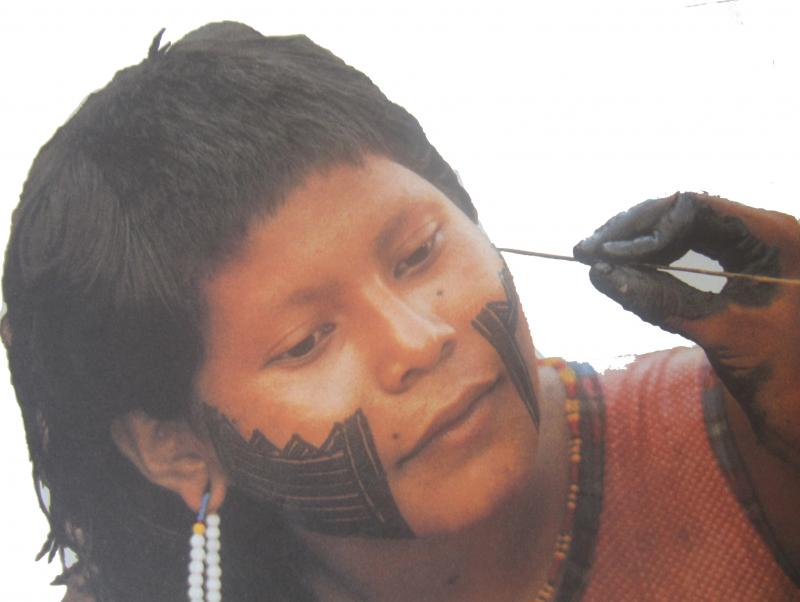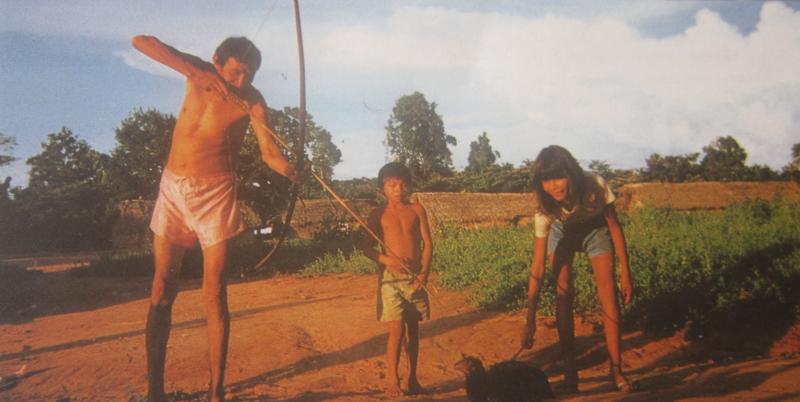The Nobles Aikewars
By Sr. Alice Lansang, ICM

A Filipino nun, Sr. Alice Lansang, ICM, has chosen to live here with the Suruis people, a branch of the Aikewar nation. Here she tells of the humble part she played in trying to protect their land from the ‘lowland’ invaders.
Ready for battle
The news was bad: Some fifty armed white settlers were all set to invade the territory of Suruis people with whom I had bee living. These settlers would destroy the forest and force out the indigenous native people.
There was no time to lose. Immediate action was necessary if they were to be stopped from installing themselves. I notified CIMI (an organization set up by the Brazilian Bishops, a bit like NASA in the Philippines) who in turn alerted the Regional Director for Land Reform. With a Public Decree he issued a warning that invading the reservation of Indians was a crime. Then we confronted the leader of the invading settlers. As a result they gave up their plans to take over the Indian land. They alleged that news had been passed around that Indian lands were being thrown open to all. True enough, other bands begun to invade points of reservation.
They young men of the village painted themselves for war, took their rifles down and surprised one group of “invading settlers” while these were at lunch. The ability of natives to walk in silence and their instinctive knowledge of the jungle is no myth. The invaders were taken prisoner. When they got to the village, the elders, women, and children gathered around. The ‘invaders’ were painted, their hair was cut and the Suruis poured out all their pent up fear, frustration, anger at the white men’s greed. Shocked, I could only witness this ritual this ritual in silence and I marveled to see that it was a fully non-violent way of letting the invaders know that what they were doing was evil. Finally agents of FUNAI showed up with the Federal Police to bring the settlers before the law.
Who were the real enemies?

Struggle for autonomy
It is my hope to be of some help in their struggle for autonomy, the recognition of their right to be different. It is a long, slow process of making them become aware of their own values so that they might know how to discern, what to keep and what to shed off of their own culture. In my relationship with them as sister to all, I hope they may come to realize that although as people we grow as different branches with regard to color, creed and culture, nevertheless, we are all rooted in the one God who is the Father of us all. I hope that by my way of being one with them they may discover what my faith in Christ means – life in full for all.
The Future
‘Not a single Indian will be left alive by 1980’ – Brazilian anthropologist, 1970. It is necessary to finish with Indians by the year 2000’ – Brazilian politician, 1994.
Since the start of colonialism, the invaders have predicted the disappearance of the tribes they found ‘in their way’ and, of course, thousands have been wiped of the face of the earth – gone forever. But many have survived, showing remarkable tenacity in the face of overwhelming odds; often adapting I varying degrees; sometimes resisting major change; sometimes retreating into remote regions.
Although tribal peoples have always tried to defend themselves against this invasion many of the tools they use now are relatively new: indigenous organizations publish their own newspapers, broadcast their own radio programmers and even, in some countries, successfully put forward candidates for political office. The techniques used by tribal people will come to evolve.
